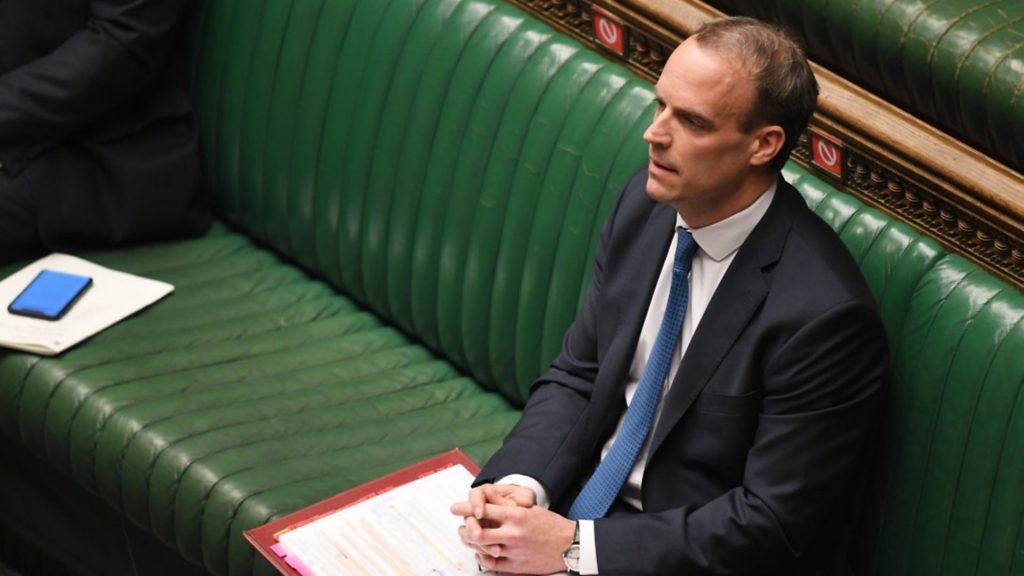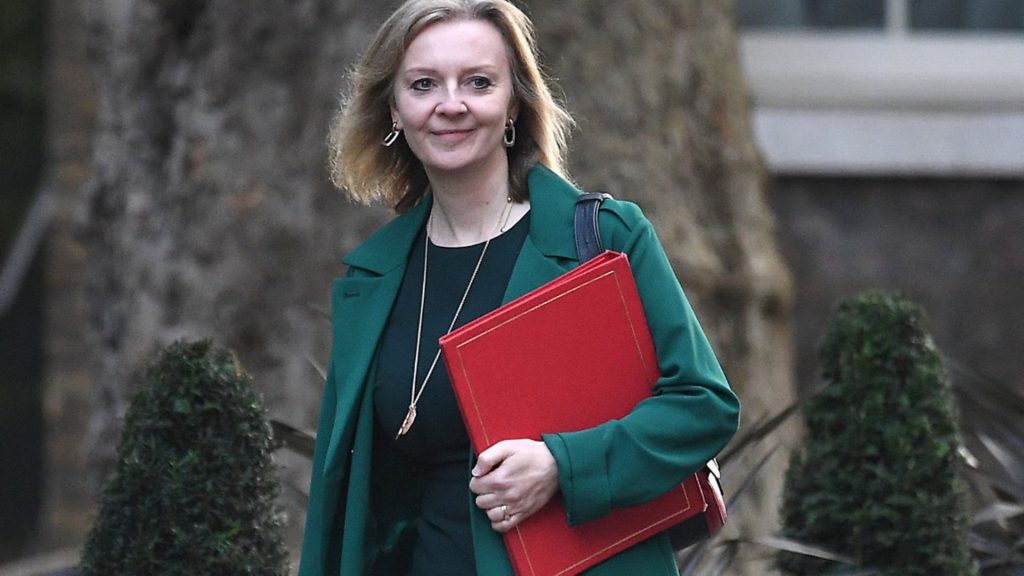
A decade ago, a handful of new Tory MPs wrote a book outlining their criticisms of the country and vision for how to improve it. Now they are in senior roles, putting their proposals into action. SUNA ERDEM revisits the original, troubling tome.

Behold the taxi driver from central casting. He keeps his car clean and works 60 hours a week. Proud and patriotic, he loves the Queen, Margaret Thatcher and Lord Sugar. He is contemptuous of ‘lazy, feckless, benefits cheats’, ‘talentless celebrities’, public sector pensions and green taxes.
‘You’ve probably guessed, I’m no socialist… I believe in a work ethic… not a great one for the Nanny State. I think where we’ve got to in helping people is over the top.’
This unnamed ‘everydriver’ – a composite from a wide survey of fellow cabbies – is the kind of old-fashioned, no-nonsense grafter beloved of middling soaps and hackneyed social analyses.
He is presented as a model character in Britannia Unchained, a self-declared optimistic tome setting out how Britain could improve its lot, written by five rookie Conservative MPs in the early years of David Cameron’s government.
But why should we care? This is an old book from old times – before coronavirus, before Brexit, before, even, single-party Conservative rule.
Those glory days where the front pages were graced by Pippa Middleton’s bottom and Boris Johnson dangling on a zipwire. Why would the musings of a handful of inexperienced MPs be of any interest?

Well, they are, because Dominic Raab is now foreign secretary, called in to take the reins of government during prime minister Boris Johnson’s illness; Priti Patel is home secretary; Liz Truss is the international trade secretary and longest-serving member of the cabinet; Kwasi Kwarteng is a business minister; and Chris Skidmore a former education minister.
Among those inspired by ideas contained within the book is Rishi Sunak, an even newer MP (2015) who before his astonishingly quick elevation to the job of coronavirus-bashing chancellor vocally championed at least one idea pushed by the publication – the controversial tax- and regulation-lite freeports.
These MPs, whose ideal citizen includes a cheerfully overworked, right-wing taxi driver on an uncertain income, are now at the helm of a country going through the biggest peacetime crisis in living memory.
They represent the libertarian-style thinking that seems to have become the norm at the top of the government. The vision they have for Britain matters, and so it seems like a good time to revisit the book in which they set this out.
All I can say is that it doesn’t withstand much scrutiny.
The premise of the thin volume is to outline the lessons that can be learned from international attitudes to work, financial structures and prosperity in order to enhance the prospects of Great Britain and stem an ‘inevitable slide into mediocrity’. There is a good book to be written about that. This isn’t it.

From the start, the writers’ uncompromising, dare I say simplistic good-versus-evil attitude permeates the text. The opening pages present us with Ashraf Rossli – a Malaysian accountancy student who was badly assaulted during the 2011 London riots but later said that he still thought Britain was fantastic (we like) – versus his 17-year-old assailant Beau Isagba, who punched him and stole his bike, and had previous for possessing a knife at 14 and cannabis at 16 (we definitely don’t like).
All of modern Britain’s ills are laid at the feet of Isagba who was imprisoned for seven years and whose early life and the context of his path to crime is not examined. He is just bad: ‘Sadly, Beau Isagba represents the worst of what some elements of Britain have become.’
Later comes Tuggy Tug, a young gang leader from Brixton, very much in the Isagba mould, pitched against Jessie Tang, a British-Chinese A-level student with high academic ambitions. And so the narrative goes on – blinkered, self-satisfied, dismissive, full of clichés.
The general premise is that the Britain of the early 2010s was in a terrible crisis, mostly, it seems, because this was no longer the 1980s under Margaret Thatcher. What with its welfare-driven ‘dependency culture’, ‘bloated’ economic structures – somewhat incredibly put on a par with southern Europe – terrible education, idle population and lack of imaginative risk-taking, the country that was about to enjoy those heady days around the London Olympics was accorded a loss of confidence that could only be solved by removing the chains holding it back.
The remedies can be found in a highly selective tour of countries and issues: Canada’s prudent deficit reduction, which insulated it during the global financial crisis; the constantly working Singaporean children’s mathematical prowess; optimistic risk-taking in Brazil; the perceived competitive advantages of regulation-hating Australia; Silicon Valley’s love of instructive failure; the ‘chutzpah’ of Israeli techies and investors; with STEM education as the answer to everything.
Written and published before the EU referendum debate proper had begun, Britannia Unchained has little time for Europe, but the authors became Brexiteers, and the language of Leavers peppers the pages.

So, red tape – bad, hard working Asians – good; health and safety – bad, risk-taking and entrepreneurs – good. Bureaucracy is always ‘bloated’ or ‘entrenched’; Brits are lazy, apart from the City, Silicon roundabout, and salt-of-the-earth cabbies. We are invited to admire buccaneers, essentially pirates, and even – oh, go on, it’s a guilty pleasure – the enterprising black market and the American Frontier Spirit. Typical words and phrases include ‘primordial’, ‘raw’, ‘the purest level of entrepreneurialism untouched by law, regulation or tax’, and again, ‘freedom from regulation or tax’.
Chapter One, ‘The Chains’, does the job of ‘talking down the country’ much more effectively than any so-called Remoaner. We are reminded that Britain ‘once ruled the empire on which the sun never set’, but that today, its parlous state is comparable to the 1970s – Winter of Discontent, IMF loan etc. Because of laziness, a lack of pizazz and a feeble need for welfare, greater bureaucracy and a propensity to question economic gospel on markets and growth, we are falling behind emerging markets which, throughout the book, are presented with a rose-tinted view that ignores more than it notices.
Nevertheless, ‘for much of the post-war era, there has been a damaging belief that economic growth is not really determined by effort,’ we are told. We just have to get on our bikes and try harder.
Chapter Two, ‘A Tale of Two Nations’, by way of trashing Britain’s economy under New Labour, recounts how Canada reduced its financial deficit to make the country more resilient. This included firing civil servants, reducing the rates and eligibility for unemployment insurance and a 50% slashing of spending on transport.
The next chapter, ‘The Revenge of the Geeks’, takes on the pre-Gove/Cummings education establishment and is a paean to the marvels of science education. Arguing that British students are too idle for hard subjects, it goes on to trash not just the dreaded media studies, but anything, really, that isn’t science (or maths).
The implication being that anyone with intelligence and drive would study the sciences and that subjects such as history, languages, English and classics are for the dim or indolent. Degree subjects taken by the authors include classics, history and politics, while none has a maths or science degree. But contradiction and double standards do not seem to trouble anyone here.
Crammers and burnout-level studying are routinely praised. ‘(In South Korea) Many students go straight from long days at school to studying all evening and weekend. In Seoul, as much as 16% of the family’s income is spent on private tuition on top of the state education system.’ British parents are ‘unwilling’ to fund extra study and at university, their children feel no need to study hard either, preferring the pub and lie-ins.
The authors predictably highlight the pushy ‘Tiger Mother’ attitude, which rather demonstrates that perhaps they – like many commentators at the time – didn’t really read Amy Chua’s book properly. Yes, she pursued an uncompromisingly ambitious educational plan for her children and noted that in the West parents didn’t have such high expectations of their offspring.
However, after an unsettling rebellion by her younger daughter, Chua detailed how she had to learn to compromise. Similarly, the Chinese pianist Lang Lang, known as much for his tough childhood with a pushy father as his musical talents, maintains success can be achieved in gentler ways.
As Chinese parents are exposed increasingly to other cultures, they often change their thinking – many send their children to school in the UK for a less rigid, more rounded education. And for those readers looking at how and why people from certain cultures achieve success, another Amy Chua book, The Triple Package, is a much more comprehensive and thoughtful choice.
The idea of lazy, feckless students segues neatly into Chapter 4, where we meet lazy, feckless adults. This chapter has an intro that is so bad it reads like an example of ‘how not to write an intro’, and includes our cabbie, pitted against those puffed up Tube drivers who dare to have salaries and join unions.
The whole section reads like Rod Liddle rant. Here we find many of the quotes that made the headlines during the book’s original publication. Eg: ‘Once they enter the workplace, the British are among the worst idlers of the world.’
On the issue of work ethic, there is an off-key, condescending quote about how Brazilians’ love of dancing and football makes them softer workers than the Chinese by the chief executive of Foxconn, the Taiwanese maker of iPads and iPhones. That’s Foxconn, part of Apple’s controversial supply chain, which, according to reports, had to put literal safety nets around its factories to catch potential suicides after a spate of self-inflicted deaths by young men working themselves to the bone in near slave conditions.
As elsewhere, the authors might be looking, but are they seeing? Where is the depth? Where is the analysis? Might the cabbie be working 60 hours a week because he isn’t paid enough for a more sensible workload. Could this in the long run make him ill and a burden on the state? Who knows? And no doubt, a few years after this article, Mr Cabbie would be sidelined by Uber, whose drivers face even less certain work without the benefit of The Knowledge and its relatively improved pay. And are the free-market authors oblivious of the fact that it is the libertarians who celebrate these hard working characters who are more likely to endorse the risk-taking and innovation that leads to cheap, less regulated Uber against black cabs and later encourage driverless cars versus Uber drivers?
As you progress through the book, the countries used as examples are starting to look like a map of the locations in McMafia – India, Brazil, Israel. Places where issues such as poverty, the lack of a safety net, relative international isolation, corruption and crime combine variously with the influence of international spivs and wide boys to create a flourishing black economy, crime and exploitative work conditions.
We are shown how people set up businesses from favelas or slums – some of them legal. Similar rags to riches stories in the book are piled on to supposedly justify deregulation and Darwinian competition.
There is no sense that there might be other conclusions. Yet, to pick the example of one media heroine from the present pandemic: Rosena Allin-Khan, the Cambridge-educated medic whose father was a Pakistani TV repairman and whose Polish mother worked in a garage and as a cleaner, clearly thought differently or she would not have become a Labour MP.
Since this book was written nearly 10 years ago, it could be that it is in essence mere juvenilia. Have the writers become more rigorous and pragmatic with time? Yet to look at attitudes and pronouncements today, it seems that the spirit of Britannia Unchained has shifted from niche to mainstream. Including the slipshod attitude to knowledge, facts and rules.
You can see this reflected in Priti Patel’s uncompromising, black-and-white stance towards the punishment of criminals. You can see it in her reductive points-based immigration plans; in her erroneous claim that EU workers could be replaced by 8.5 million economically inactive Britons (fact-checkers quickly revealed that a vast majority of these comprised students, the sick, family carers, retirees, those awaiting job application results or in no need of a job); her reportedly brash attitude to staff, whom she allegedly derided as lazy and stupid; and the bullying allegations against her. It also lurks beneath Patel’s apparent disdain for rules when she took on the freelance diplomacy while on holiday in Israel in 2017 that led to her forced resignation as international development secretary and accusations by Home Office sources that she encourages behaviour outside the rule of law.
It is evident, too, in the comments by Dominic Raab, as Brexit secretary, when he expressed surprise at the importance to trade of the Dover-Calais crossing. His disastrous, short tenure in that job was subsequently blasted by diplomats in Brussels as unhinged, inconsistent and naïve. In a cutting Telegraph article, EU sources criticised him as ‘pompous’, ‘disinterested’ and ‘unprepared’, a ‘Darwinian disaster capitalist’ with ‘stupid’ negotiation tactics and a tendency for ‘dangerous flights of improvisation’, quite unlike ‘the fully-briefed details man or tough negotiator meting out home truths to the EU he claims to be,’ the newspaper wrote.
Among the others, Kwasi Kwarteng has been accused by the legal profession of undermining the rule of law by implying that judges were biased. Liz Truss had to apologise last year for her department breaching several times a court order against arms sales to Saudi Arabia.
The easy , hollow slogans of ‘Take Back Control’ and ‘Get Brexit Done’, come from the soul of Britannia Unchained, even if they were not conjured up by its writers.
Boris Johnson’s ideology appears more malleable than that of the five authors, but they have a lot of power in his government, and his creative view of facts and disinclination to study detail are well known. At the same time, the coronavirus crisis and Brexit have broken the bonds of the past and handed ministers unprecedented potential for innovation, as Britain makes her way forward in uncertain times.
In Britannia Unchained, much is made of Britain’s need to break from its existing ways and forge a bright new future. But while the book does include admirable examples of fortitude, the writers are not really giving us a recipe for how Britain could emulate these – apart from general pluck – that doesn’t involve grinding poverty, slave labour, cut-throat competition, war, or ‘effective’ authoritarians.
It all seems a bit rushed, and full of broad brush sweep, bravado, unsubstantiated statements (are Brits really working fewer hours than ever? Are school standards really at rock bottom compared to some halcyon past?) and clichés masquerading as sage observations. Were they – hush – not scientifically methodical enough to get everything straight first? They didn’t – heaven forbid – sacrifice clear scientific evidence to slipshod ideology?
The ideas and methods of this book could drive the government for years to come. And that doesn’t augur well. Britannia Unchained is not completely empty of content or ideas – these students of international economic driving forces have clearly skim-read the source matter. But it doesn’t disguise the fact that they basically did their homework on the bus.











